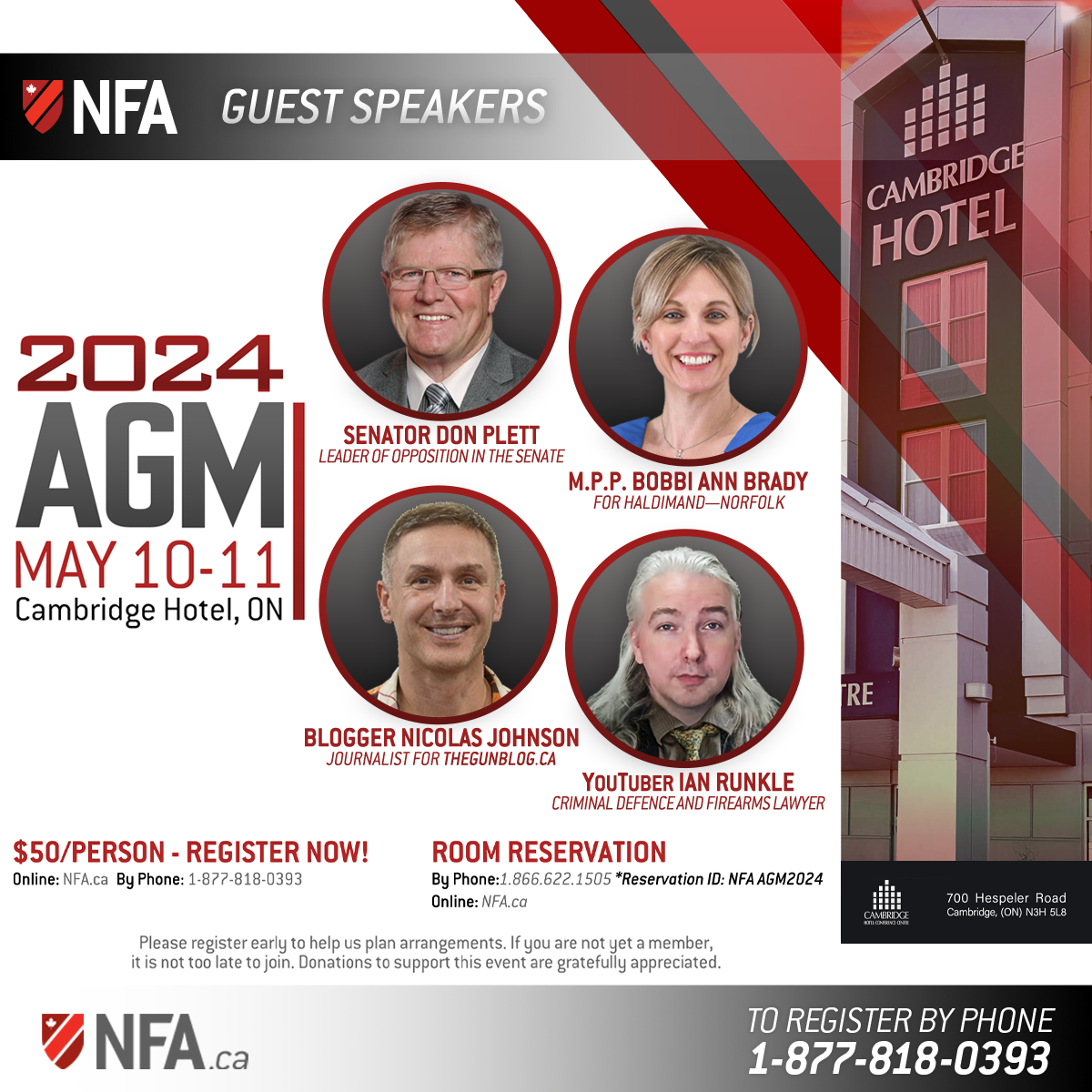Unpublished Lott-Mauser Letter
Despite spending a whooping $2.7 billion on creating and running a long gun registry, Canadians still have not reaped any benefits. Even though the registry started registering long guns in 1998, it has yet to solve one single murder. Instead it has been an enormous waste of police officers’ time, diverting their efforts from patrolling Canadian streets and doing traditional policing activities. As parliament debates whether to eliminate the long gun registry, safety should be the real concern.
Control advocates have long claimed that registration was a safety issue, and the reasoning was straightforward: If a gun had been left at a crime scene and it was registered to the person who committed the crime, the registry would link the crime gun back to the criminal.
Nice logic, but reality does not work that way. Crime guns are very rarely left at the crime scene, and when they are left at the scene criminals are not stupid enough to register their guns. Even in the few cases where crime guns are left at the scene it is usually because criminals have either been seriously injured or killed, so these crimes will be solved even without registration.
The statistics speak for themselves. During the seven years from 2003 to 2009, there were 4,257 homicides, 1,314 of those were committed with firearms. Data provided this last week by the Library of Parliament reveals that in less than a third of the homicides with firearms was the weapon identified (422), and most of those — 308 — were not registered. Of the 114 that were registered, 52 were registered to someone other than the person accused of the homicide. In just 62 cases — that is only 4.7 percent of all firearm homicides — was the gun registered to the accused, some of those are obviously innocent. As most homicides are not committed with a gun in Canada, the 62 cases correspond to only about 1 percent of all homicides.
To repeat, during these seven years there are only 62 cases — 9 a year — where it is conceivable that registration made a difference. But apparently, the registry was not important even in those cases. As the RCMP and the Chiefs of Police have not yet provided a single example that tracing was more than peripheral importance in solving even a single case.
The problem isn’t just with the long gun registry. This data covers all guns, including handguns. There is no evidence that since the handgun registry was started in 1934 that it has been important in solving a single homicide.
There is no evidence that registration reduced homicides. Research published this year by McMaster University Dr. Caillin Langmann in the Journal of Interpersonal Violence confirmed what academic studies have found: “This study failed to demonstrate a beneficial association between legislation and firearm homicide rates between 1974 and 2008.” There is not a single refereed academic study by criminologists or economists that has found a significant benefit from the gun laws. A new Angus Reid poll indicates that shows that this is something that Canadians already understand, with only 13 percent believing that the registry has been successful.
The problem isn’t just that the $2.7 billion spent on registration over 17 years has produced no arrests, it is that the money could have been used to put more police on the street or pay for more health care or cut taxes. A $160 million a year pays for a lot of police or doctors or teachers.
Take police. Assuming each officer is paid $70,000 per year, that pays for almost 2,300 officers. Academic research by one of us indicates that adding that many street officers would reduce violent crimes in Canada by about 1,800. Registration isn’t getting Canadians any of this.
The costs of running the registry aren’t just the $2.7 billion, since that excludes enforcement costs and individual compliance costs. 2 million times last year the first step that police in Canada do in an investigation is to see if a person is a licensed gun owner. But with just nine possible cases a year where Canada’s 6.4 million registered gun owners might be involved in a firearm homicide the return seems as close to zero as possible. It is also claimed that registration protects police officer safety, but homicides against Canadian police officers is actually up 20 percent since the long gun registry started compared to the rate during the previous decade. And more importantly the real bottom line is just one police officer has been identified as being killed by someone with a registered long gun. And it was registered to someone else, so it couldn’t have helped identify the murderer.
Last Sunday, Gatineau MP Francoise Boivin on CTV’s Question Period worried that scrapping the long-gun registry would be a $2 billion waste, “a $2 billion bonfire.” Unfortunately, that money is already wasted. The problem is that the registry costs keep growing. It is running about $100 million a year to operate. That money hasn’t been wasted yet, and scrapping the registry will let the money be spent on things that will actually do some good.
*Gary Mauser is professor emeritus at Simon Fraser University and John Lott is the author of More Guns, Less Crime (University of Chicago Press, third edition, 2010).



